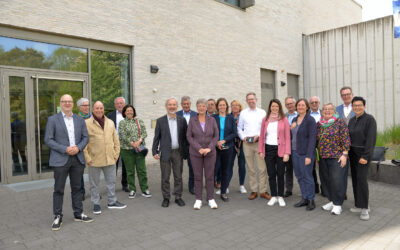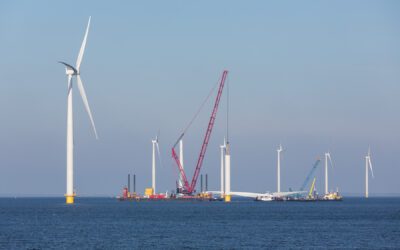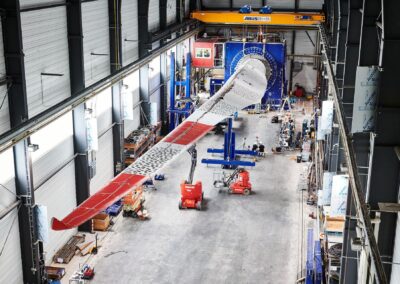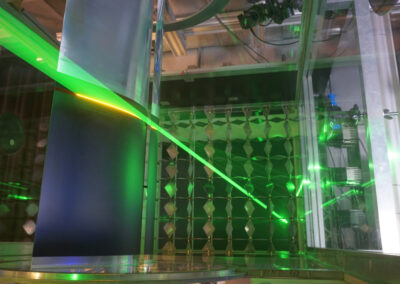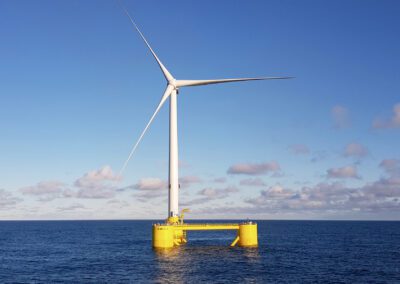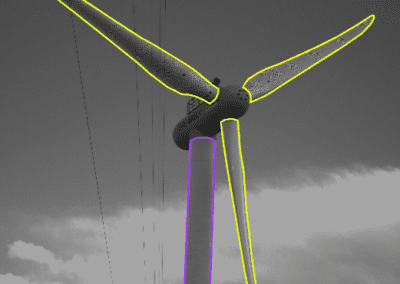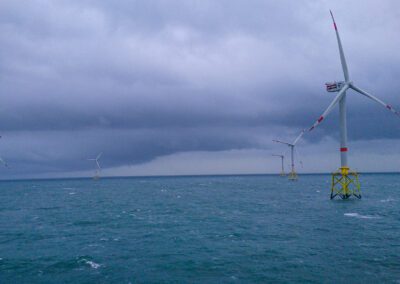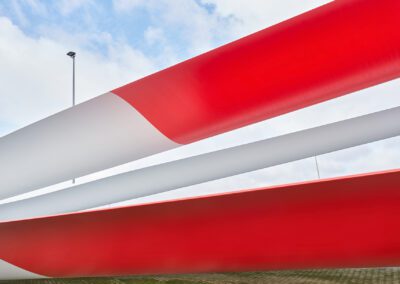


News
Currently there are no open positions
Representatives of Lower Saxony state politics visit: Two delegations visit wind tunnel
Over the past few weeks, ForWind's WindLab has once again been a meeting point for the exchange between cutting-edge wind energy...
Offshore Megastructures collaborative research centre awarded a second funding period
The German Research Foundation (DFG) has approved the extension of the Offshore Megastructures collaborative research centre....
ForWind – Our mission
We are wind energy research
ForWind is the joint center for wind energy research of the universities of Oldenburg, Hannover and Bremen.
ForWind is responsible for the EFZN wind research line at the Energy Research Center of Lower Saxony (EFZN ). The EFZN is a joint scientific center of the universities of Braunschweig, Clausthal, Göttingen, Hannover and Oldenburg.
Together with the German Aerospace Center (DLR) and the Fraunhofer Institute for Wind Energy Systems IWES, ForWind forms the Research Alliance Wind Energy .
ForWind
WIND ENERGY RESEARCH
ForWind is working on the important questions concerning wind energy research in numerous research projects. The scientific spectrum ranges from meteorology and materials research to the integration of wind power into the electrical grid. Research focuses on engineering, physics and meteorology, computer science and economics.
How can the turbulence in the wake of wind turbines be recorded as accurately as possible? What loads act on the support structures of offshore wind turbines? What opportunities does wind power offer for a decentralized energy supply in the future?
Here you can learn more about our research areas Resource Wind, Machine & Rotor, Support Structures, Grid as well as Production Technology.
Ongoing research projects
ForWind brings the findings from basic research to industry through application-oriented projects. In 20 years we have gained a lot of experience in collaborative projects with a large number of industry and research partners.

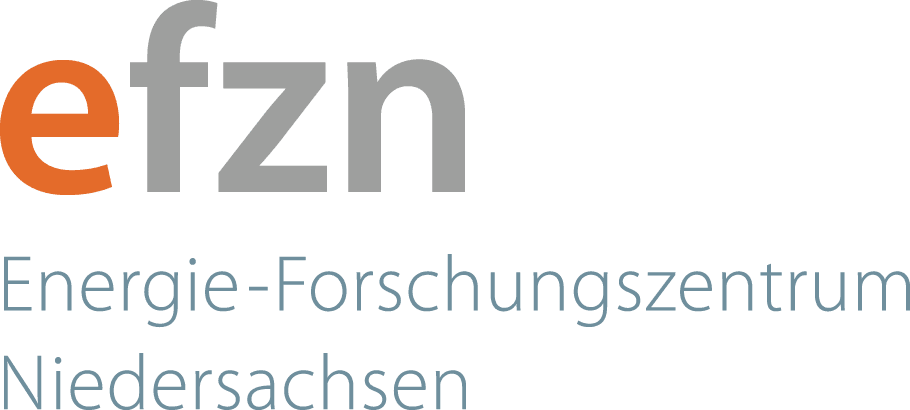
Strong in the network
Wind energy research in the north-west is brought together by ForWind and connects 30 institutes and working groups from the universities of Oldenburg, Hannoverand Bremen. ForWind thus forms a research network that is unique in Germany and covers a broad spectrum of scientific topics. Research focuses on engineering, physics and meteorology, computer science and economics.
ForWind was founded in 2003 with the support of the Lower Saxony Ministry of Science and Culture (MWK). Since then, wind energy research at the universities of Oldenburg and Hannover has been combined in ForWind. In 2009, the University of Bremen joined as a new partner, allowing ForWind to once again significantly expand its research spectrum. ForWind continues to be funded by the MWK.

Scientific qualification
At all three participating universities, specialists for the wind energy industry of the future are being trained scientifically.
ForWind is a co-initiator of the European Wind Energy Master (EWEM), a transnational double degree Master’s course funded by the European Commission as an Erasmus Mundus Master’s course from 2012 to 2018.
Associated partners from research institutes, industry and NGOs form a strong support network for our students and PhD students.
Our networks
ForWind nimmt im Energie-Forschungszentrum Niedersachsen (EFZN) die EFZN-Forschungslinie Wind wahr. The EFZN is a joint scientific center of the universities of Braunschweig, Clausthal, Göttingen, Hannover and Oldenburg.
Together with the German Aerospace Center (DLR) and the Fraunhofer Institute for Wind Energy Systems (IWES), ForWind forms the Research Association for Wind Energy (FVWE).
Our researchers are also involved in numerous international initiatives and organizations that are geared towards the goal of climate-friendly energy production in the future.
Study and further education
ForWind brings the findings from basic research to industry through application-oriented projects. Neben der wissenschaftlichen Begleitung industriell ausgerichteter Projekte bietet ForWind mit dem Weiterbildenden Studium Windenergietechnik und -management das bundesweit erste akademische Weiterbildungsprogramm speziell für die Windenergiebranche an.
The advanced study program Wind Energy Technology and Management (Wind Studies) is aimed at specialists and managers who want to build their future in the wind energy industry on a solid foundation of specialized knowledge and key qualifications.

